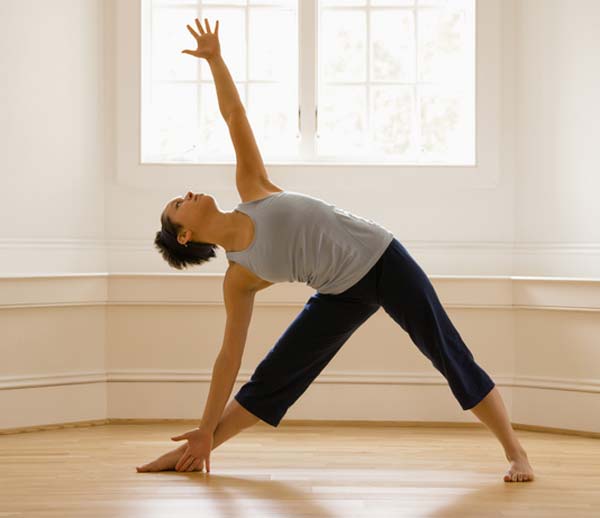Yoga May Help Depression, Sleep Problems

Some people with certain psychiatric conditions may benefit from yoga, according to a new review.
The review, which examined results from 16 well-designed studies of yoga's effect on mental illness, concluded that yoga may have positive effects for people with depression and sleep complaints even if they don't take medication, as well as for people suffering from schizophrenia and ADHD who are taking medication.
However, the review did not find a benefit for people with eating or cognitive disorders.
Studies that have looked at yoga suggest the practice influences chemical messengers in the brain, inflammation in the body, and other biological factors in much the same way antidepressants and psychotherapy do, said study researcher Dr. P. Murali Doraiswamy, a professor of psychiatry and medicine at Duke University Medical Center in. [See The Science of Yoga and Why It Works.]
However, the studies in the review had limitations. Most of the studies on depression included patients with mild depression, so it's not clear if the results will apply to those with more severe forms of the disorder. Also, in many of the studies, people performed yoga in groups, and it's difficult to separate the effect of yoga from that of social interaction, Doraiswamy said.
In one study of 69 older adults with mild depression, weekly yoga sessions reduced depression scores by 40 percent at six months. A comparison group of adults who didn't take yoga, and a group that practiced a form of complementary medicine called Ayurveda, did not show changes in depression scores.
In another study of 39 adults who were sleeping poorly (they were receiving chemotherapy), seven weeks of yoga improved sleep quality and reduced the need for sleep aids. People who did not take the yoga sessions (control group) did not have an improvement in sleep.
Sign up for the Live Science daily newsletter now
Get the world’s most fascinating discoveries delivered straight to your inbox.
The National Center for Complementary and Alternative Medicine (NCCAM) says people should not replace conventional medical care with yoga. Nor should people who practice yoga postpone seeing a health care provider. Patients should tell their doctor about any complementary health practices they use. Anyone with a medical condition should check with a health care provider before starting yoga, NCCAM says.
Pass it on: Yoga may have positive effects for people with depression, complaints, schizophrenia or ADHD.
This story was provided by MyHealthNewsDaily, a sister site to LiveScience. Follow Rachael Rettner on Twitter @RachaelRettner, or MyHealthNewsDaily @MyHealth_MHND. We're also on Facebook & Google+.

Rachael is a Live Science contributor, and was a former channel editor and senior writer for Live Science between 2010 and 2022. She has a master's degree in journalism from New York University's Science, Health and Environmental Reporting Program. She also holds a B.S. in molecular biology and an M.S. in biology from the University of California, San Diego. Her work has appeared in Scienceline, The Washington Post and Scientific American.









